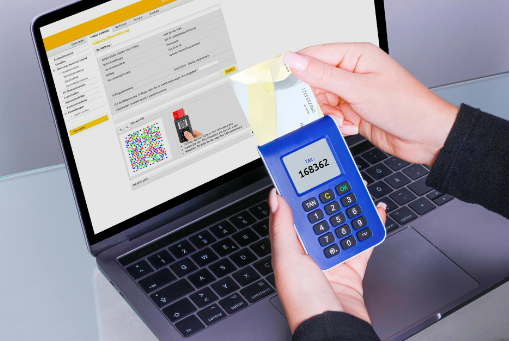
How to Easily Find IFSC Codes: A Complete Guide
Ever tried sending money to a friend, only to be stumped by the elusive IFSC code? These codes are crucial for ensuring your money lands in the right place. Each IFSC code—short for Indian Financial System Code—serves as a unique identifier for a bank branch, simplifying and securing online transactions. They're a must-know for anyone engaging in digital banking or fund transfers. In this post, we'll explore easy ways to find these codes, ensuring your transactions are both swift and secure. Whether you're new to the world of online banking or a seasoned pro, mastering IFSC codes can save you time and avoid any transaction hiccups. So, let's make banking a breeze!
What is an IFSC Code?
Ever been puzzled by the mysterious IFSC code while transferring funds online? This alphanumeric string is more than random characters. It's a powerful tool that ensures your money reaches the right destination. Understanding its purpose and structure is the key to navigating digital banking with ease. Let's break down this essential component of electronic fund transfers.
 Photo by Markus Spiske
Photo by Markus Spiske
Definition of IFSC Code
An IFSC (Indian Financial System Code) is a unique identifier for bank branches within India, crucial for seamless electronic fund transfers. This 11-character code isn't just another banking jargon—it's how systems worldwide pinpoint specific banks and branches for transactions. Think of it as the digital address that ensures money lands exactly where you intend.
The Reserve Bank of India developed this system to streamline and secure transactions. Whether engaging in NEFT, RTGS, or IMPS services, the IFSC code facilitates accurate and swift processing. For an in-depth understanding of what an IFSC code entails, you can check this guide.
Components of an IFSC Code
An IFSC code comprises 11 characters, each playing a critical role in identifying and routing transactions:
First Four Characters (Letters): Indicate the bank's code. For instance, 'SBIN' stands for the State Bank of India. This part is the eye of the code, directly identifying the financial institution.
Fifth Character (0): This character is always zero, serving as a future placeholder, ensuring the code structure remains standardized.
Last Six Characters (Digits): These numbers specify the branch code. This part is the final puzzle piece, pinpointing the exact branch location. Hence, while '123456' doesn't reveal much alone, in the context of its IFSC, it's your branch's GPS.
For more detailed insights into IFSC code components, this article offers a comprehensive explanation.
Understanding each part helps demystify how banks manage to send your funds precisely where they need to go. This knowledge not only aids in banking but also empowers you, providing clarity in your digital transactions.
Why is the IFSC Code Important?
The IFSC code plays a crucial role in India's banking sector, acting as a linchpin for ensuring smooth and secure online fund transfers. This unique alphanumeric code not only facilitates various types of electronic transactions but also acts as a safeguard against fraudulent activities. Let's dig deeper into the reasons why the IFSC code is indispensable.
 Photo by Markus Spiske
Photo by Markus Spiske
Role in Electronic Fund Transfers
Electronic fund transfers like NEFT, RTGS, and IMPS are the financial highways of today's world. But how do they know where to go? That's where the IFSC code steps in. It's like a precise GPS for banking transactions.
- NEFT (National Electronic Funds Transfer): This system settles payments in batches and relies on the IFSC to identify which bank branch should receive the transfer.
- RTGS (Real-Time Gross Settlement): Speed is critical here, as funds are transferred in real-time. IFSC ensures these transactions land in the correct branch without a hitch.
- IMPS (Immediate Payment Service): For 24/7 fund transfers, the IFSC code is crucial for instantaneous routing to the right destination.
Essentially, each transaction requires the right IFSC to move money seamlessly from sender to receiver across banks. For more on the significance of IFSC in fund transfers, you can explore this resource.
Prevention of Fraudulent Transactions
In an age where digital fraud is as prevalent as ever, securing transactions is vital. The IFSC code helps achieve this by functioning as a stringent checkpoint in the electronic transfer process.
- Verification: Before any money moves, the IFSC code ensures verification of the bank branch's legitimacy, minimizing the risk of funds being misdirected.
- Security Layer: By acting as an address confirmation system, it adds another layer of security, ensuring funds only travel through the intended path.
The security provided by IFSC codes cannot be overstated. While sharing the IFSC is generally safe, it's crucial to remain vigilant about other sensitive information. For more info on how the IFSC code helps prevent fraud, check out this article.
By understanding the importance of these codes, you not only enhance your knowledge but also improve the security and efficiency of your banking activities.
Where to Find Your IFSC Code
Struggling to find that elusive IFSC code? You're not alone. Knowing where to look can make banking transactions a whole lot easier. Let's explore some straightforward methods to locate your IFSC code without the hassle.
 Photo by Luis Gomes
Photo by Luis Gomes
Bank Website and Mobile Apps
Your bank's website or its mobile app is often the most reliable source for finding your IFSC code. Many banks provide tools or sections dedicated to displaying branch codes. To locate your IFSC code:
- Log into your bank's online portal using your credentials.
- Navigate to the account information or bank details section.
Mobile apps are also handy tools for banking on the go. They usually have features tailored to deliver IFSC codes right at your fingertips. Check out apps like ALL BANK IFSC CODE on Google Play for easier access.
Bank Passbook and Chequebook
IFSC codes are typically printed on bank documents. Both the passbook and chequebook are reliable sources:
- Passbook: The front page often contains both your bank account details and the branch's IFSC code.
- Chequebook: Look for the IFSC code at the top of your cheque leaf or the information pages that come with the chequebook.
For more guidance on where to find your IFSC in these documents, visit ICICI Bank's informative blog.
Customer Service and Support
When you're in doubt, don't hesitate to reach out to your bank's customer service. They can guide you through the process of finding your IFSC code. Tear down those walls of doubt by:
- Calling your bank's helpline and asking specifically for your branch's IFSC.
- Visiting a local branch to speak directly with a customer service representative.
For a comprehensive way to connect with various bank supports, explore Policybazaar's detailed page.
Online IFSC Code Finder Tools
Numerous online tools offer IFSC code look-up services, making your life a whole lot easier. Here are a few options:
- IFSC Code Search Tool by TaxBuddy: A user-friendly tool for quickly finding your branch's IFSC code.
- Paytm IFSC Code Tool: Search by bank name and city for precise results.
- BankBazaar IFSC Code Finder: Offers access to a wide range of bank codes and branch details.
These resources offer straightforward, no-nonsense solutions to help you find the correct codes. It's like having a digital assistant to keep your banking smooth and error-free.
How to Use IFSC Codes for Transactions
Navigating the nuances of digital banking often means mastering elements like the IFSC code. This unique identifier is crucial in facilitating efficient and accurate electronic money transfers between banks in India. Understanding how to use IFSC codes correctly can make your online transactions smooth.
Entering IFSC Codes in Online Transfers
 Photo by REINER SCT
Photo by REINER SCT
When you're transferring money online, entering the correct IFSC code is key to ensuring the funds reach the intended account. Here's a step-by-step guide to help you through the process:
- Log into your net banking account. Whether you use a computer or mobile app, ensure you're accessing your banking service securely.
- Navigate to the 'Fund Transfer' section. This is typically labeled clearly in your bank's interface.
- Select the type of transaction, such as NEFT, RTGS, or IMPS. Each type requires the IFSC code for completion.
- Enter the recipient's account details. You'll need their bank account number and the corresponding IFSC code.
- Double-check the IFSC code. It's easy to make a typo, which could delay your transaction or send funds to the wrong branch. Ensure the code matches the bank branch intended for the transfer.
- Review and confirm the transfer. Once you're sure the details are correct, proceed with the authorization of the fund transfer.
For more detailed instructions on using IFSC codes, you might want to consult this guide that outlines the process comprehensively.
Common Mistakes to Avoid
Entering an IFSC code might seem straightforward, but there are common pitfalls that people often encounter. By being aware of these, you ensure your transactions are hassle-free.
- Incorrect IFSC Code: This is one of the most frequent mistakes. Make sure to verify the IFSC code with the recipient or through trusted online tools before proceeding.
- Mismatching Branch: Using a wrong branch's IFSC code could result in transaction failure. Always confirm the code matches the specific branch of the recipient's bank.
- Relying Solely on Memory: Memorizing an IFSC code might lead to errors. Keep the code written down safely or stored digitally for reference.
When these errors occur, transactions can get rejected, or money might need to be refunded, which could take time. To avoid these issues, double-check details, and for more insights on common mistakes with IFSC codes, visit this guide.
Ensuring accuracy with IFSC codes guarantees smoother transactions, saving you time and preventing potential frustration. Keep this guide handy to navigate financial transactions with confidence and ease.
Navigating IFSC Codes: The Key to Smooth Banking
In the vast sea of digital banking, IFSC codes act as guiding stars, ensuring your transactions sail smoothly. Here's why knowing how to find and use these codes is critical for every banking experience.
Importance in Banking
 Photo by Google DeepMind
Photo by Google DeepMind
IFSC codes are not just strings of numbers and letters; they are essential tools that streamline electronic transactions. Each code verifies a bank branch's identity, ensuring money lands exactly where you intend. For more insights on their significance, explore this ICICI Bank blog.
- Precision and Efficiency: IFSC codes eliminate errors by accurately directing funds. This precision is akin to having a tailored map in an otherwise chaotic city.
- Security Assurance: By verifying branch identities, these codes act like security passes, preventing unauthorized transactions.
If you're curious about more on the role of IFSC codes in banking, check out this article.
Where to Find IFSC Codes
The process of finding an IFSC code should be as easy as a few clicks or a quick glance. For those looking to simplify their search:
- Online Resources: Websites like BankBazaar provide quick access to IFSC codes across various banks. These platforms are reliable allies when you're in the digital jungle of banking codes.
- Bank Documents: Look at your chequebook or passbook; these often have the IFSC code printed. It's like having a mini guidebook in your pocket.
For more detailed methods to find your IFSC code, visit this page by Policybazaar.
Practical Usage in Transactions
IFSC codes are integral to the smooth operation of several transaction forms. Without them, your funds would wander aimlessly, risking delay or misplacement.
- Accuracy in Transfers: While entering codes might seem annoying at times, think of them as your money's GPS, ensuring every rupee reaches its destination without getting lost in transit.
Avoid common mistakes by always double-checking your IFSC entries and using trustworthy sources to confirm them. The key here is vigilance, like a hawk watching its prey.
For additional details on the correct usage of IFSC codes in transactions, this guide provides comprehensive advice.
Staying Ahead in Banking
Understanding and using IFSC codes effectively makes you a savvy navigator in the realm of banking. These codes aren't just bureaucratic necessities; they're your ticket to hassle-free financial transactions. By mastering them, you hold the power to simplify your banking, save time, and prevent errors. Whether you're transferring funds or checking account balances, your knowledge of IFSC codes can be your banking superpower.
For a deeper dive into the role and benefits of IFSC codes, explore this comprehensive resource.
Comments